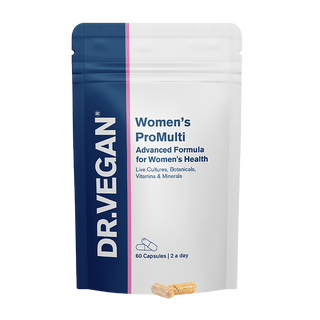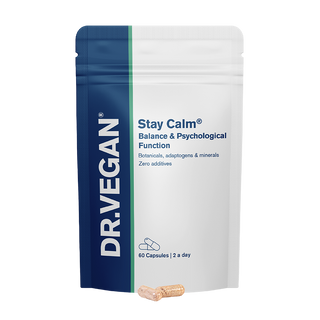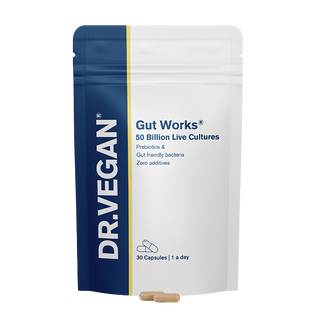Happy hormones explained

Hormones play a crucial role in regulating our mood, emotions, and overall well-being. Among them, the so-called 'happy hormones' - serotonin, dopamine, oxytocin, and endorphins - are responsible for feelings of happiness, pleasure, and emotional stability. These chemicals interact with the brain and nervous system to influence our mood, motivation, and stress levels. Imbalances in these hormones can lead to mood disorders, anxiety, and depression.
Understanding how they function and how we can naturally optimise their levels through lifestyle and diet can have profound effects on mental and physical health.
What are our happy hormones and their functions?
1. Serotonin – The mood stabiliser
Serotonin is a neurotransmitter that regulates mood, sleep, digestion, and overall emotional wellbeing. Low serotonin levels are linked to depression, anxiety, and sleep disorders. It is primarily produced in the gut and plays a significant role in maintaining a balanced mood. Learn more about the gut-brain connection. You can also find out more about how to support your gut by visiting the DR.VEGAN® gut hub.
2. Dopamine – The reward chemical
Dopamine is associated with pleasure, motivation, and reward-driven behaviour. It is released when we achieve goals, engage in enjoyable activities, or experience something pleasurable. Dopamine imbalances can lead to conditions like depression, addiction, and lack of motivation.
3. Oxytocin – The love hormone
Often referred to as the 'bonding hormone', oxytocin is released during social interactions, physical touch, and moments of emotional connection. It fosters trust, empathy, and deep relationships. Oxytocin also plays a vital role in reducing stress and promoting emotional resilience. You may also enjoy reading 'Does sex boost your immune system?'.
4. Endorphins – The natural pain relievers
Endorphins are chemicals that act as natural painkillers and stress relievers. They are released during exercise, laughter, and pleasurable experiences. Endorphins help reduce pain perception and create a sense of wellbeing. Discover why exercise helps through menopause.
What happens if our happy hormones are imbalanced?
Imbalances in happy hormones can lead to a range of mental and physical health issues, including:
- Low serotonin levels: Depression, anxiety, mood swings, sleep disturbances, and digestive issues. In a DR.VEGAN® survey of over 1,500 men and women, it showed that more than 1 in 3 of us suffer with poor sleep* - learn more about the impact of having a lack of sleep in the sleep problem.
- Dopamine deficiency: Lack of motivation, fatigue, difficulty experiencing pleasure, and increased risk of addiction.
- Oxytocin imbalance: Social withdrawal, difficulty forming relationships, increased stress levels.
- Endorphin deficiency: Increased sensitivity to pain, chronic stress, and low energy levels.
Lifestyle tips to increase the production of happy hormones
Fortunately, there are natural ways to boost these hormones:
- Exercise – Physical activity, especially aerobic exercises and yoga, increases endorphin and dopamine levels. You may also enjoy these nutrition tips for working out and 5 tips for a safe and enjoyable return to running.
- Sunlight exposure – Spending time in natural sunlight boosts serotonin production.
- Mindfulness and meditation – Practices like meditation and deep breathing enhance dopamine and serotonin levels.
- Social connections – Spending time with loved ones, hugging, and positive interactions release oxytocin.
- Laughter and music – Watching something funny or listening to uplifting music can trigger endorphin release.
- Quality sleep – Good sleep hygiene helps regulate dopamine and serotonin production. You may also enjoy reading 'Do probiotics help with sleep and stress?' and 'How your diet can help your sleep'
Diet tips to increase the production of happy hormones
A plant-based diet rich in key nutrients can support optimal hormone levels. Some key vegan foods include:
- Serotonin boosters: Bananas, nuts (especially walnuts), seeds (flaxseeds, chia seeds), tofu, and whole grains. These foods contain tryptophan, a precursor to serotonin. Try this 'Serotonin-boosting Banana & Walnut Porridge' recipe. You can also check out other delicious mood-supporting recipes on the DR.VEGAN® recipes hub
- Dopamine enhancers: Dark chocolate, avocados, almonds, pumpkin seeds, and legumes provide essential amino acids and antioxidants that support dopamine production. You may like our 'Dopamine-Boosting Dark Chocolate & Avocado Smoothie'.
- Oxytocin supporters: Fermented foods like kimchi, sauerkraut, and miso promote gut health, which is crucial for oxytocin regulation. Enjoy our 'Oxytocin-Supporting Fermented Miso & Tofu Bowl'. Discover how to look after your gut through your diet.
- Endorphin triggers: Spicy foods, raw cacao, and exercise-induced dietary choices help promote endorphin release. Try our 'Endorphin-Boosting Spicy Chickpea Stuffed Sweet Potato' recipe.
The consumption of ultra-processed foods may increase the risk of developing conditions such as depression and anxiety, which can negatively impact brain function and overall gut health. Find out more about why supporting your gut health is so important in 'why you should improve your gut health'.
Conclusion
Happy hormones play a vital role in maintaining emotional well-being, motivation, and stress resilience. By making conscious lifestyle and dietary choices, we can naturally support their production and balance, leading to improved mental and physical health. Incorporating regular exercise, social bonding, mindfulness, and a nutrient-rich vegan diet can help optimise these neurotransmitters, enhancing overall happiness and well-being. By taking small, proactive steps, we can harness the power of happy hormones for a healthier, more fulfilling life.
View our range of award-winning probiotics, vitamins and supplements.
You may also enjoy reading:
- The 'Gut-Hormone Connection' explained
- How your diet can improve your mental health
- Does sex boost your immune system?
- Female hormones and hormonal belly explained
*Based on a UK survey conducted by DR.VEGAN® of 1,503 men and women, nationally representative. All customer survey findings reflect our own efforts and have not been influenced or verified by any external organisations or third-party entities.



















